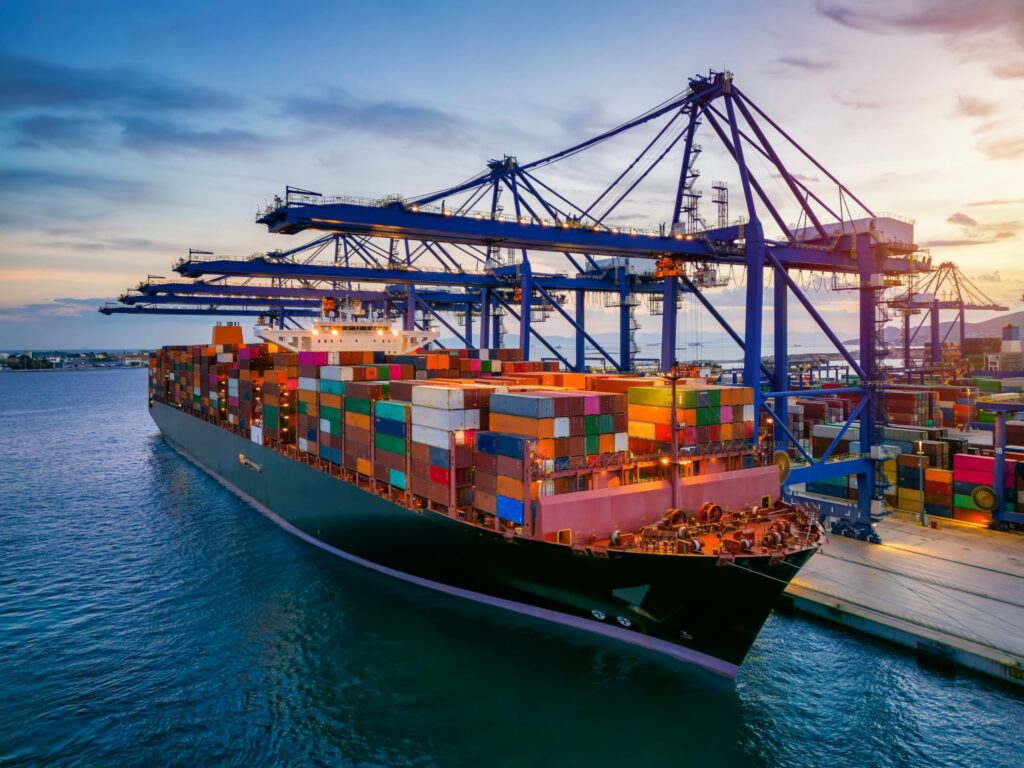International shipping has long been the backbone of global trade, enabling goods to move across continents and oceans. From the early days of wooden sailing ships to today’s ultra-modern container vessels, the industry has constantly evolved to meet the demands of a rapidly changing world. In recent years, however, technological advancements have sparked a revolution in international shippingtransforming how goods are transported, monitored, and managed.
Read also: Research Reveals Challenges in Route Planning for International Shipping
A Brief History of International Shipping
The origins of international shipping trace back thousands of years to the ancient civilizations of Mesopotamia, Egypt, and China. Early maritime enterprises used wind-powered ships to transport their cargo including spices textiles along with precious metals through extensive maritime pathways. The advancement of stronger shipbuilding practices together with better navigation instruments enabled the starts of the Age of Exploration through which international shipping became vital for global expansion and trade.
The Industrial Revolution began a modern shipping era through steam-powered vessels and iron hulls development. Standards in shipping routes alongside the establishment of big port facilities were among the achievements of this period. The containerization revolution mastered by Malcolm McLean during the middle of the twentieth century optimized international shipping while decreasing expenses and making operations significantly more efficient.
Technological Advancements Transforming the Industry
In the 21st century, digital technology is the driving force behind the latest evolution of international shipping. Here are some of the key technological innovations reshaping the industry:
1. Automation and Smart Shipping
International delivery has experienced a complete transformation through automated processes. The implementation of advanced software systems now rules operations in ports where they control different kinds of automated equipment and cranes. Autonomous ships are currently tested and developed for vessel operations with low human involvement even though they remain in a preliminary stage. This vessel technology will improve safety while generating decreased labor expenses and better fuel usage.
The implementation of Internet of Things (IoT) devices alongside sensors along with analytics systems into ships and freight makes up smart shipping practices. Modern industrial technologies send live data about engine functionality and cargo conditions which helps maintain equipment ahead of time and improve operational efficiency.
2. Blockchain for Enhanced Transparency
International shipping adopts blockchain technology at an increased rate because it provides both enhanced transparency alongside security improvements. Through its indestructible transaction record system blockchain lowers fraudulent activity and speeds up customs procedures and enhances documentation management. TradeLens represents one of the several blockchain platforms that Maersk with IBM developed to demonstrate supply chain management optimization.
3. Artificial Intelligence and Machine Learning
Through their implementation AI and machine learning systems determine shipping routes while maximizing fuel efficiency for optimized logistical operations. The analysis of extensive data through these technologies enables organizations to make better routing and maintenance planning and cargo loading decisions which reduces costs while improving service quality.
4. Green Technologies and Sustainable Shipping
The international shipping industry changes its practices toward sustainability because of environmental challenges. The maritime sector decreases its carbon footprint through new innovations that include LNG engines alongside wind propulsion systems and hybrid electric vessels. Companies now use digital platforms to track emissions for meeting international environmental compliance requirements.
5. E-commerce and Real-Time Tracking
Improving technology in e-commerce brought about greater demands for quick and dependable international delivery services. Faster delivery times combined with real-time tracking expectations from consumers have caused logistics companies to dedicate investments into next-level tracking technology along with data analytical solutions. Both GPS systems and satellite-based technologies enable shippers together with their customers to track any shipment’s precise location at all times.
Challenges and Opportunities Ahead
Despite the many technological advancements, international shipping still faces significant challenges. The proliferation of cyber threats affects maritime operations since ships and ports continuously become linked through networks. The industry faces multiple barriers such as regulatory hurdles alongside environmental regulations and geopolitical tensions.
The obstacles currently faced in the industry provide possibilities for developing new solutions. The combination of modern technological investments with preparedness for updated regulations creates superior business performance within a developing international shipping market. Stakeholder collaboration between governments along with shipping companies and technology providers needs to be fundamental because it will sustain industry growth and environmental sustainability.
The Human Element in a Digital Age
Modern technology applied to international shipping requires changes in traditional human workforce responsibilities. The reduction of manual operations through automation brings about stronger market demands for employees who specialize in data analytics as well as cybersecurity and system management. To maximize the potential of technological breakthroughs organizations must train their staff and boost their current skills.
Looking to the Future
International shipping will evolve to become smarter along with becoming more efficient while achieving eco-friendliness. The industry stands to gain further revolution through emerging technologies that include 5G connectivity as well as quantum computing and advanced robotics. Effective digital transformation of the world economy is set to preserve international shipping as a fundamental component of global business operations.
The development of international shipping stands as evidence of human brilliance which combines with adaptations made by people during this progress. The industry utilizes technological advancements to address current challenges thus maintaining its ability to link the world in ways that have never been possible before.
Author Bio
Riya Sharma is a passionate writer at DTDC Australiadelivering insightful content on logistics, shipping solutions, and industry trends. With a knack for simplifying complex topics, she keeps readers informed and engaged.

